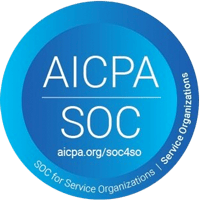What does the coming year bring for vaccination in the private and public sectors? Will the healthcare workers’ vaccine mandate still be in effect in 2022? The news is still unfolding, and there’s a lot of moving pieces to follow. We break down the current status of healthcare vaccine mandates.
Vaccine Mandates and the Federal Government
The federal government is hoping to see every American get vaccinated against COVID-19. The Biden administration is doing its best to enforce this where possible—in other words, in the public sector.
According to a White House briefing, vaccine mandates have increased vaccination rates in America by 40%. It’s the clear position of the Biden administration that these mandates are a big part of protecting the American public.
President Biden’s COVID-19 plan from early December included lots of strategies to stem the spread of the virus. The plan gave all adults access to booster shots and required Medicaid-participating businesses to educate families about vaccinations for children.
The Biden administration announced in November plans to invest $1.5 billion in federally funded healthcare programs. This money is estimated to aid 22,700 providers and is meant to address inequity in healthcare access. If the federal government’s mandates are upheld, facilities receiving this funding would likely be required to ensure employees are vaccinated.
The COVID-19 plan also called on businesses to either require vaccinations or weekly testing for all employees. This language may be a concession to the federal government’s limited power in the private sector. While the government may not be legally able to mandate vaccines for private businesses, it can offer support and encouragement, and make vaccines as widely accessible as possible.
Vaccine Mandates for Healthcare Have Popular Support
Overall, the idea of a vaccine mandate for healthcare workers has been well received in America. A majority of Americans support these mandates. That’s important since the WHO says mandates like these will only work if they’re supported by the public. Without this support, they’re likely to fall short and should be treated as a last resort if other pro-vaccination campaigns don’t work.
As of October, Northwestern University reported that 65% of all Americans supported a universal vaccine mandate. That would mean a requirement for every American adult who could get vaccinated to do so, regardless of their work or role in the community. This percentage is smaller for Americans who identify as Republicans (43%).
Six out of ten respondents said they believed businesses should either require their employees to get vaccinated or mandate weekly testing, while 68% said employers should give employees time off to get vaccinated and recover from any possible side effects.
Vaccine Mandates Face Legal Hurdles
Despite the federal government’s support for healthcare worker vaccine mandates, these requirements have faced legal challenges in multiple states. In Georgia, Missouri, and Louisiana judges have argued that the president is not legally permitted to enforce mandates in the private sector. Pushback is coming from both judges and Republican senators, and the US Senate blocked these mandates in early December. Because of this, federal vaccine mandates and mandates that affect private-sector employers are currently on hold.
If these mandates are upheld, they would affect about 100 million American workers. Some of these workers are employed in healthcare, but the mandate would also affect any business with more than 100 employees. Any employer who doesn’t comply with the mandate could face a hefty $14,000 fine for every unintentional violation, or up to $136,532 if they ignored the mandate on purpose.
What does this all mean for healthcare employers? At the moment, the status of 2022 vaccine mandates is still unclear. Vaccine mandates are on hold for the time being, but given the federal government’s clear interest in supporting mandates, it’s wise to prepare for a future where all healthcare workers will need to be vaccinated.
Should Healthcare Professionals Expect Vaccine Mandates in the Coming Year?
Will healthcare workers be required to get the Covid vaccine this year? Vaccine mandates are still in murky territory, but we’ll go over everything you should know right now.
The Healthcare Workers’ Vaccine Mandate in the Public Sector
At the moment, with federal mandates in limbo, it’s not certain how public healthcare providers will be affected by healthcare workers’ vaccine mandates.
If the mandates are upheld, healthcare employers across professions can expect to feel the effects. Healthcare businesses that participate in the Medicare program will need to ensure their employees are vaccinated, affecting about 50,000 healthcare providers and 17 million healthcare workers. Needless to say, this causes some businesses concern. Recruiting new hires to healthcare positions is already a challenge, and the combination of pandemic burnout and vaccine mandates may complicate things further.
The currently proposed mandate is an expansion of a vaccine mandate that initially only affected skilled nursing facilities. The paused mandate now includes other businesses that participate in Medicare, including dialysis centers, home health agencies, and hospitals. Businesses that flaunt these mandates could risk violation fines and loss of federal financial support.
Some healthcare businesses are taking advantage of the current confusion to drop their vaccine mandates. Employers including the Cleveland Clinic, Intermountain Healthcare, and HCA Healthcare have all reversed their vaccine policies. These businesses currently permit unvaccinated employees to come to work. This move isn’t surprising given the challenges of recruiting during the healthcare talent shortage, but it may not be sustainable. It remains to be seen how staffing will be affected should the mandates be upheld.
The Healthcare Workers’ Vaccine Mandate in the Private Sector
The future of vaccine mandates within the private sector is also unclear. Businesses that don’t participate in Medicare might not be affected by federal vaccine mandates, even if they are upheld.
Even so, business owners and operators would do well to prepare for a future where employees must be vaccinated. Considering precedents set by the Supreme Court and President Biden’s administration, it’s entirely possible mandates will continue to roll out. It’s a good idea to plan as if mandates will affect you, even if they currently do not.
Both public and private care providers should carefully watch mandates occurring on the level of state government.
State-Based Vaccine Mandates
While mandates are still in question on a federal level, state governments are still taking their own actions. These state-level mandates may affect both private and public healthcare businesses, and so far, they’ve held up against challenges.
As of December 13, 2021, the Supreme Court has shut down two requests to block the vaccine mandate in New York. These challenges argued that vaccine mandates should be subject to religious exemptions (along with medical exemptions, which are already in place). To date, the Supreme Court has declined to challenge healthcare workers’ vaccine mandates in Maine, at the University of Indiana, and now in New York.
In all of these states, individuals requested that vaccine mandates should be blocked or asked for more exemptions. The Supreme Court’s decision not to support these requests might indicate how they’ll treat local vaccine mandates in the future. In other words, it looks likely that states will be allowed to mandate vaccinations for workers even while the federal mandates are in question.
Why Should You Prepare for Future Vaccine Mandates?
Don’t give in to the temptation to kick the can down the road. Prepare for 2022 by making a staffing plan that accounts for the possibility of healthcare workers’ vaccine mandates.
There’s no guarantee that vaccine mandates will affect you in the coming months or even the coming year, but there’s also no guarantee they won’t. Signs from state governments, the federal government, and the Supreme Court all indicate that this is an issue that will continue to stir up conflict for quite a while.
Even if vaccine mandates are blocked or dropped, healthcare businesses should consider how their policies will affect their entire community. Some may need to recruit unvaccinated workers to deal with staffing shortages, but it’s possible this will create issues in the future.
It’s also worth noting that vaccine policies can both discourage and encourage candidates from applying. While some healthcare workers will inevitably resist vaccine mandates, others may feel unsafe in a workspace where vaccinations aren’t required. Although mandates may seem like one more hurdle to jump, a potential silver lining is that a vaccinated workplace will attract some workers who are seeking just such a space.
How Should You Prepare for Vaccine Mandates in 2022?
Employers and workers in both the public and private sectors should prepare for the possibility of ongoing vaccine mandates. Even if the federal vaccine mandates are permanently blocked, these mandates might still be introduced and upheld by state or local governments.
Here’s what healthcare professionals should do now and in the coming months to prepare for the year ahead.
Offer Education and Support to Employees
Some businesses are still hiring unvaccinated employees. If you have unvaccinated workers in your facility, you should plan now for the possibility that you will need to ensure they get vaccinated on short notice.
A common source of vaccine hesitancy is confusion about side effects and efficacy. One of the best ways to get ahead of vaccine anxieties, therefore, is by offering education. Even if mandates don’t affect you and you don’t expect them to in the future, take some time to answer questions and address common concerns about the vaccine.
The government is distributing its own education and awareness campaign, but this information is likely more meaningful and accessible coming directly from an employer. Give employees a chance to ask questions directly and anonymously. This is also a chance to show that you are aligned with your workers as a community. Listen to their worries, but be clear about the facts. Share data on how many people experience side effects after getting a COVID-19 vaccination, and compare these numbers with the percentage of people who have side effects after getting a flu shot. This may help put things in perspective and set fears to rest.
Open Lines of Communication
Even while you’re uncertain if the healthcare workers’ vaccine mandate will be upheld, you can still communicate honestly with staff. This might just mean letting them know that the future is unclear.
You don’t need to take a stance on the mandates. It should be enough to make it clear, in your recruiting and in your communication with employees, that you’re abiding by the developing regulations to keep your doors open.
If you choose to mandate vaccinations for staff, be clear about the reasons behind your policy—whether you’re focused on public safety or anticipating future mandates. State your policy plainly to avoid employee pushback.
Strengthen Your Recruiting Efforts
Inevitably, some healthcare workers will not get vaccinated, even in the face of a broad federal mandate. If this is the case, you may lose staff. No employer wants to hear that, especially in the middle of a serious talent shortage.
Whether or not you lose staff over vaccine mandates, chances are you need to amplify your recruiting in the coming year. Staffing shortages are widespread, and many healthcare organizations are competing for the same limited pool of top-tier candidates. While retention efforts may help you maintain your staffing ratios, effective recruiting is at the heart of solving the staffing shortage.
Better Healthcare Staffing With Apploi
There’s a lot we don’t know about the future of the healthcare workers’ vaccine mandate, but Apploi is here to simplify staffing no matter what. We help employers source candidates, streamline hiring, and onboard new recruits. Hire painlessly to make a great impression on new applicants.
Interested in learning more about how you can recruit, hire, and onboard healthcare staff quickly? Contact us today for a free demo of our end-to-end talent management solution.





